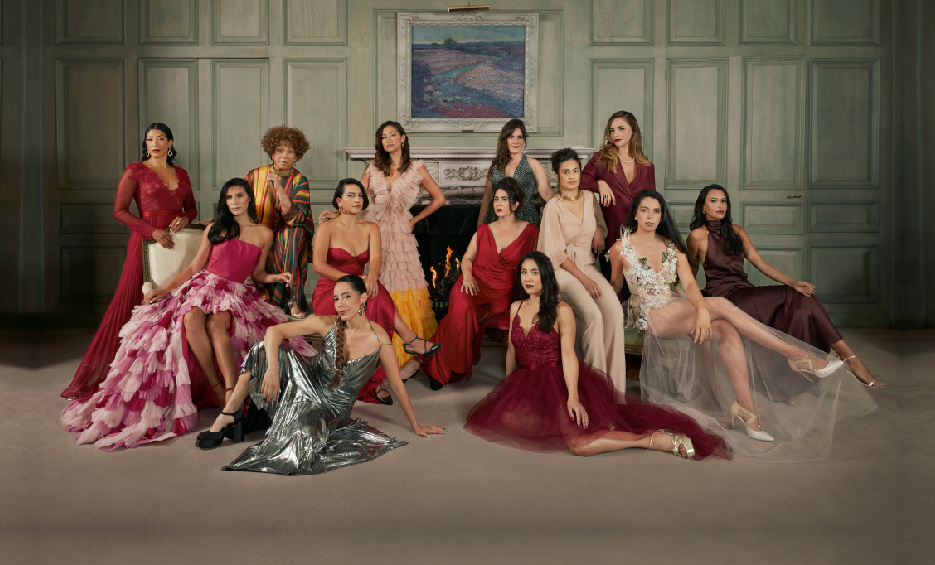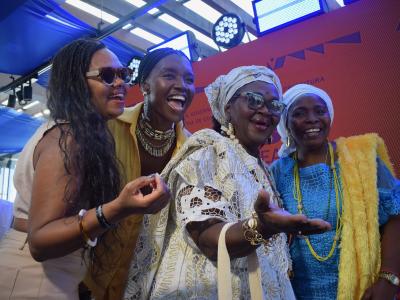While studying for her BA in Musical Theatre in the UK, Mexican-born actress Gabriela García was advised by an agent to change her name to Gabriela Smith. “He told me Gabriela García was too exotic and it wouldn’t get me in the [audition] room,” she says, adding, “I’ve also been turned down for parts because I wasn’t 'Latina enough'.”
When Jimena Larraguivel, another dark-haired actor from Mexico, was cast by the Royal Shakespeare Company as Calpurnia in last year's acclaimed production of Julius Caesar, Sunday Times critic Quentin Letts mocked her “thick Spanish accent”, quipping that she “may or may not be related to Manuel from Fawlty Towers.”
Colombian-British actress and producer Jessica Maria Gilhooley was thrilled to be cast as the daughter of a “standard British family” in an Edinburgh Fringe production of The Graduate. But upon spending summery days with her castmates, “the director told me I needed to stay out of the sun else I wouldn’t fit into the family.”
Embodied in these actors’ stories is a challenging landscape: rarely deemed good enough to play themselves, even when ‘themselves’ is a concept imposed by others, and almost never good enough to play anyone else.
 |  |  |
Within the plethora of stories of racial typecasting and prejudice in British film and theatre, from directors to critics, the most recent being from Black-British actor Francesca Amewudah-Rivers, the experience of Latin American actors in the UK is rarely heard. And so, let us start at the beginning, for the story of Latinx erasure and misrepresentation is a long and rich one, with its origins in the annals of Hollywood.
A History of Misrepresentation
From its inception, Hollywood has relied on oversimplifications and distortions of Latin Americans, from villainised or dummified caricatures of (usually smelly and unkept) Mexicans fighting good-looking American cowboys in Westerns to hyper-sexualised and exoticised “latin lovers”. Hollywood particularly liked to conflate the perceived stupidity of both Mexicans and Indigenous Americans, done most effectively in the character Tonto, The Lone Ranger's sidekick, named 'stupid' in spanish, just in case the dumbness of his character wasn't clear enough.
To add insult to injury, most often these characters weren’t even played by Latinx actors. The man for whom the phrase “Latin Lover” was coined, 1920s sex symbol Rudolph Valentino, was in fact Italian-American. In 1961, Russian-American actress Natalie Wood played West Side Story's leading lady, Maria, using brownface and a shoddy attempt at a Puerto Rican accent. Reflecting on her own experience playing Hollywood's most famous Latin American female lead in the seminal musical, Gabriela notes: “growing up watching that version, I think because the actress wasn’t Latina, I was never interested in being Maria. I was more interested in Anita, played by Rita Moreno.”
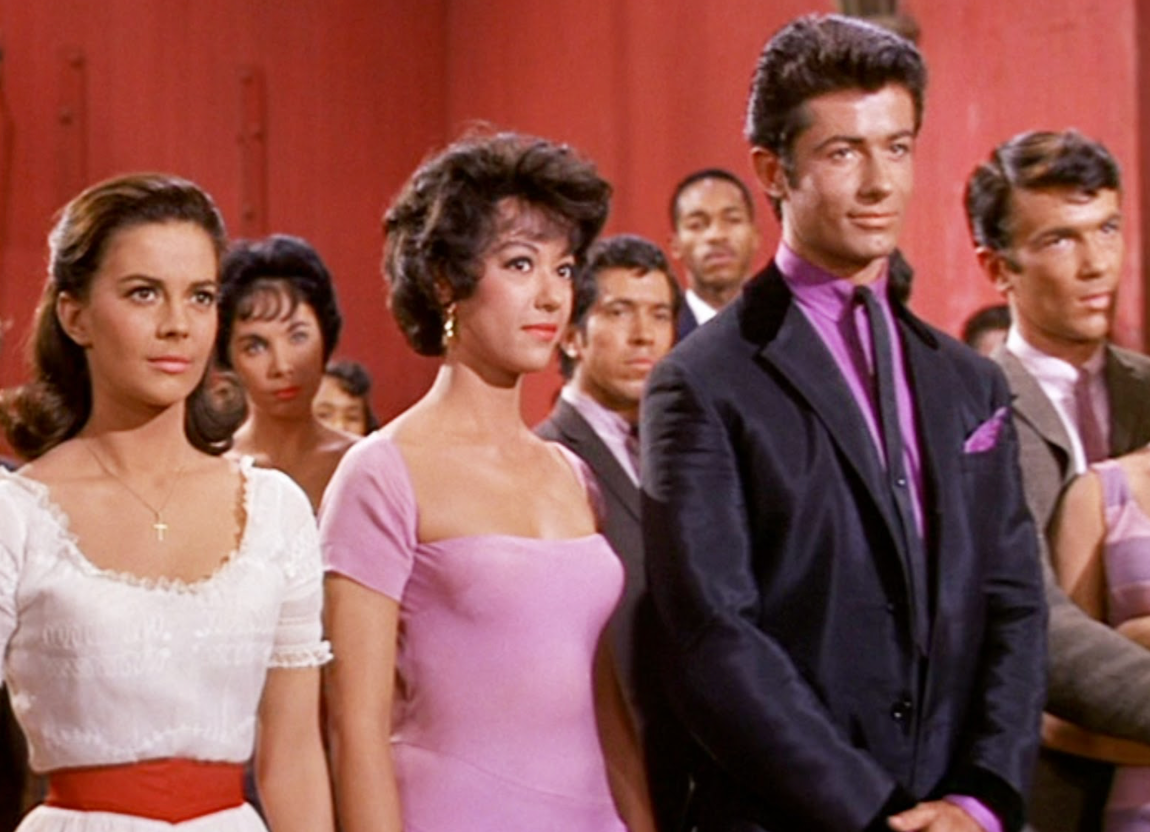
Despite the Civil Rights movements in the 70s, Latinidad generally remained the source of punchline after punchline, where accents and difficulty with English provide plenty of cheap material, and rarely the starring role. Al Pacino's over-the-top portrayal of Cuban drug lord 'Scarface' is the quintessential example of Latin American typecasting, delivered again by an Italian-American. From 'Miami Vice' to 'Blood in Blood Out', you'd be challenged to find many Latino characters on screen who weren't drug dealers or criminals. Many of Latin America's greatest actors who were courted by Hollywood, such as Ricardo Darín, never made the transition because they refused to play gang members and drug dealers.
As for female Latina actors, your offering was largely reduced to playing a maid. One of Hollywood's busiest Latina actresses, Lupe Ontiveros, famously claimed to have played a maid 150 times in her career, one of her last being in 'As Good as it Gets.' And yet even suffering this in order to be one of Hollywood's most successful Latina actors, didn't earn her a mention in the 2103 'In Memorium' segment of the Oscars when she passed away, to public outcry.
Well into the 90s, non-Latinos were still playing the few Latino characters in Hollywood, from the six leading roles in Isabel Allende's 'House of the Spirits' (including Meryl Streep, Jeremy Irons and Winona Ryder) to Madonna, cast as Evita. Without the spotlight to be able speak up, it was African-American comedian and actor Chris Rock who highlighted the farce at the Oscars in 2014 "You're telling me no Mexicans can do anything in a studio? Really? Nothing but mop up?"
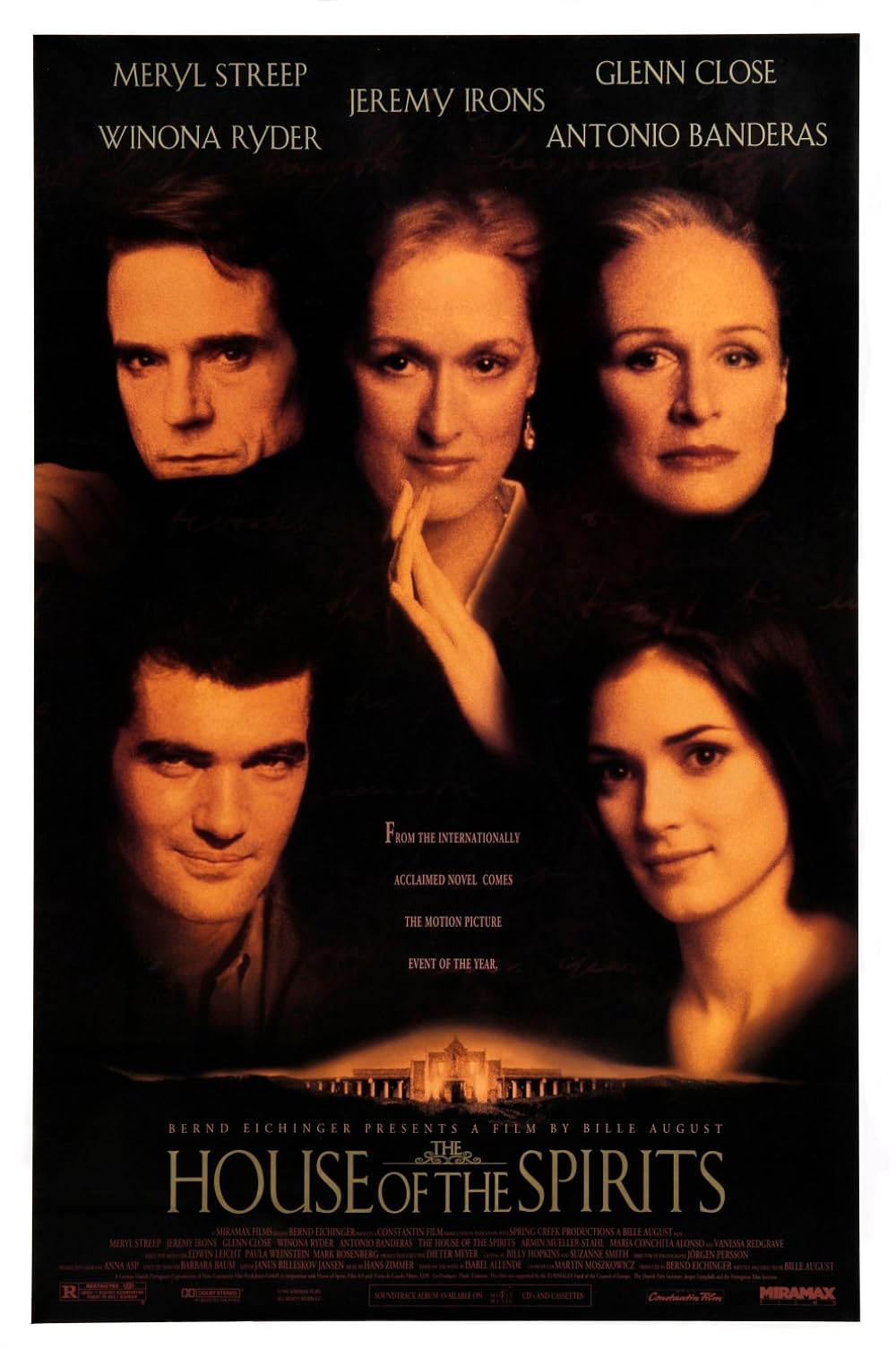 |  |
In the noughties musical Rent, the role of Mimi, the Latina “exotic dancer”, was originated by Latina actresses on Broadway, but not without her profession as a sex worker and her drug addiction playing into negative racialised stereotypes.
The 2010s has seen somewhat of a breakthrough, with a new wave of Mexican directors dominating Hollywood. However, of all the films by Alfonso Cuarón, Héctor González Iñurritu, Guillermo del Toro, only one of them cast a Latinx as their lead, in Cuarón's Oscar winning 'Roma.' And, you guessed it, she's a maid.
Finally, the success of animated films Coco and Encanto and Lin Manuel-Miranda’s musical 'In The Heights' have marked a water-shed moment; films about Latinxs, cast with Latinxs, the latter two written by a Latino. “In Nina, I saw myself represented,” says Gabriela, who played the central character in the play's London debut in 2014. "She was intelligent, ambitious and afforded a complex narrative arc."
The UK Panorama - Straddling Emotion and Pragmatism
Whilst advances are finally being made in the US, in the UK, in front of and behind the camera, onstage and backstage, in writing rooms and on billboards, Latina creatives are fighting to be seen, listened to and represented. Their dilemma straddles complex ground where the ideological meets the practical.
Mulling over her Julius Caesar experience, Jimea recognises that “there will always be people who dislike Shakespeare in a foreign accent. What helped was that I had the support from The Royal Shakespeare Company who were happy to bring me on board for exactly who I am.”
Whether recent immigrants or UK born or bred, female actors of Latin American heritage face diverse challenges. “When I was growing up no one on television looked or talked like me and my family,” says model turned actor Tara Hoyos-Martínez, raised by Colombian parents in London, who for years was unable to visualise herself in positions of creative conspicuousness. “I was interested in performing arts, but never really thought it was an option.”
Also raised in London by a Colombian mother and a Spanish father, Lorena Andrea, who recently played Perla in Disney’s 2023 live action remake of 'The Little Mermaid', echoes this sentiment: “I didn’t grow up seeing people like me.”
 |  |
Jessica agrees: “it was very obvious that I was different from what I was seeing on TV and in films,” which is why, she suspects, her director's comment about her skin tone in The Graduate rehearsals hit so hard: “I brushed it off at the time, but coming back to it, it broke me. I just wanted to fit in, to get ‘normal’ parts.”
Gledys Ibarra, by contrast, was a trailblazing telenovela superstar, as one of the first afro-Latina actors to make it big on Venezuelan TV. In 2015, at the peak of her career, she arrived in the UK, fleeing the crisis at home, and had to start from scratch, her language – a fundamental of her craft – ripped away from her. The solution? “To study three times harder than my fellow English actors. I have to practise the pronunciation over and over, for every single word, in order to even feel I can open the door to getting an acting part,” says Gledys, who has since re-built her career, straddling theatre and TV in both Spain and the UK.
Meanwhile, Colombian actress Giullianna Martínez, whose early leanings were towards Shakespeare and Brecht, “felt like classical theatre was a world that I didn’t belong in.” At the same time, she says, “I felt very pigeonholed as a Latina in Los Angeles,” where she was previously based. Her passion for classical works led her to move to the UK, where she has starred in Hamlet, Twelfth Night and multiple productions of 'The Crucible'.
“For me, my love for the craft has always been at the centre of it. Being an actor is a way of life, acting is what’s going to light me up for the rest of my life,” Giullianna says. "Dedicating myself to expanding Latinx representation in the classical scene has only made that flame burn brighter."
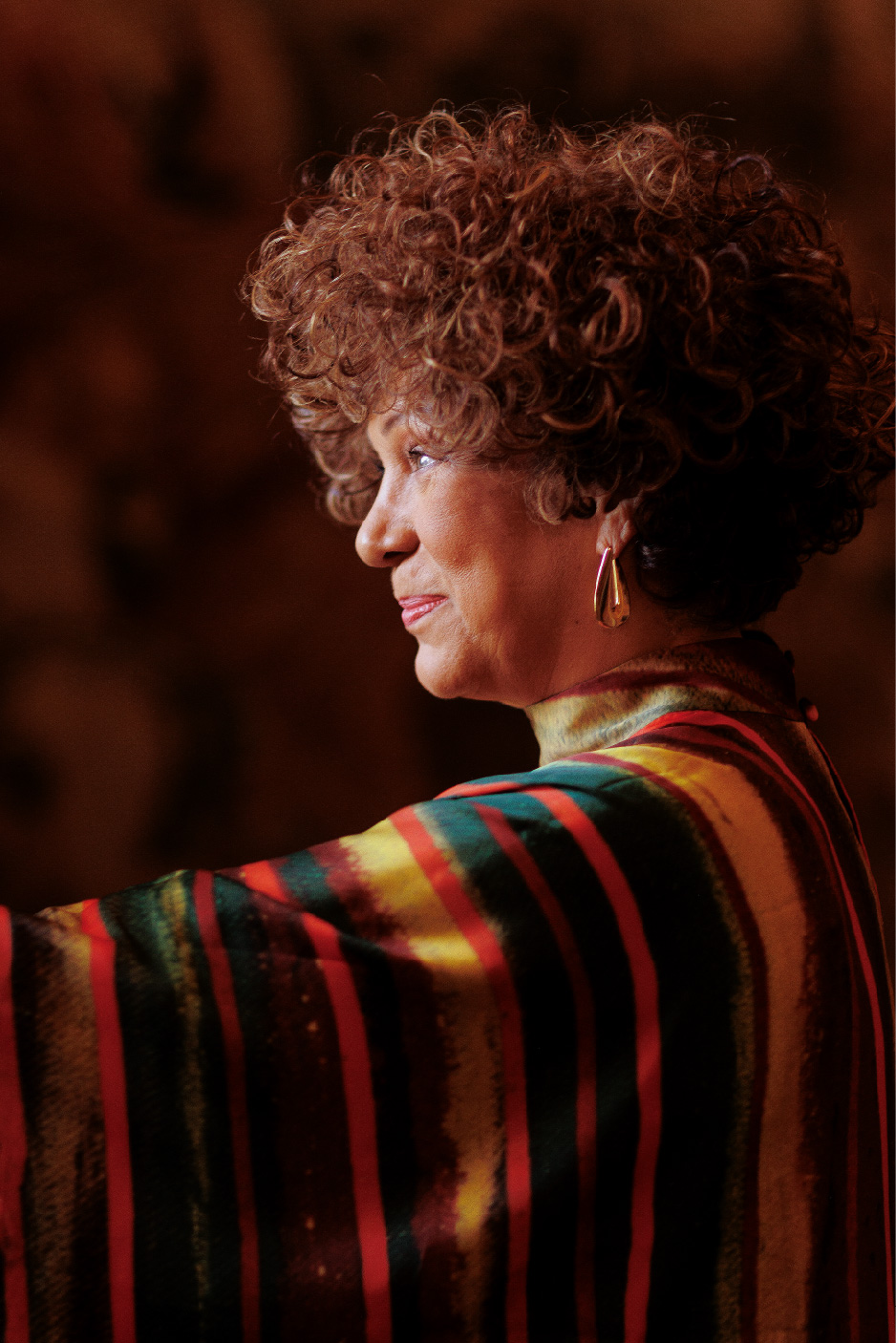 |  |
For Gabriela, who never changed her name to Smith, being asked multiple times to tone her identity up or down has led her to find the balance between “pushing hard and advocating for yourself, as yourself” yet also finding solutions within, rather than waiting for the UK industry to change. “When I started out, I was very intense but, over time, I found a better rhythm for myself. When you leave your country with a goal in mind, you have to do it, you are so hungry. Now I’m more relaxed. I think I know my worth more.”
From Dreams to Reality
Growing up in an immigrant family comes with complex obstacles. While some parents want to encourage their children into any future they desire, a lack of representation gets in the way of goal setting, for both parents and children, says Giullianna: “When you’re born to immigrant parents, they can come from a place of instability and all they want for you is stability, so when tell them that you want to do something notoriously unstable is a bit tricky. My parents always supported me, but representation shapes what you think you can do and where you think you can have a space at the table -- that’s true for our parents as well as for us.”
Mostly for these women, the power of the dream that has catapulted them forward. Samantha Manzur, a Chilean-Palestinian actor raised in Chile and based in London, was tugged towards acting by a play performed at her school when she was “blown away at a by people talking and pretending the audience weren’t there”.
For Peruvian-born theatre-maker Pepa Duarte, who recently starred in the BBC’s Father Brown, an improv workshop at age 13 propelled her towards the stage.
 |  |
British-Colombian actor Díana Bermudez’ Year 5 teacher in London, placed her in an extracurricular drama programme, much to her chagrin, where the shy 9-year-old went on to be cast in the lead role and discover a passion for acting.
Yet, even for Jimena, who grew up besotted by her grandmother’s amateur dramatic career in Mexico, “acting was a dream, but I couldn’t see how it could become a reality for me.”
From this perspective, there’s a certain impetus in seeing and being seen. If you never saw yourself anywhere, the notion of your own visibility is one of power and progress. Where there once little or nothing, there is now you. To pursue a career in the arts is an act of bravery, a leap of faith in and of itself.
The Issue of Representation
Representation is not simply about getting in the room, on the screen or in the show - it is what happens once you get there. So many of the roles for Latina performers are based in reductive understandings of what Latinas can be. To play these pigeonholed roles - a drug-lord’s wife, a cleaner, a sex worker, a struggling immigrant - isn’t intrinsically problematic, only if that’s all there is. How meaningful is it to be seen if you are being seen only as someone else’s parochial and prejudiced idea of you?
Jessica is “still open to playing these roles”, but simultaneously emphasises that “we’ve got a thousand million more stories”. Gledys says she “receives every role that comes to me with my arms open,” while Giullianna emphasises her goal in “playing roles where Latinas aren’t typically cast.”
Díana approaches this dilemma on a case by case basis: “When you have to play a character who goes against your ethics and morals, that’s very challenging. If I were to get to Sofia Vergara’s position, I would be more vocal about turning down those kinds of roles; it would be ok to have the odd Narco role if we were represented in better lights all round, but we’re not, and that’s why it’s so tricky. If it’s a fully-fledged developed character, it makes it easier and I’m more likely to go for it.”
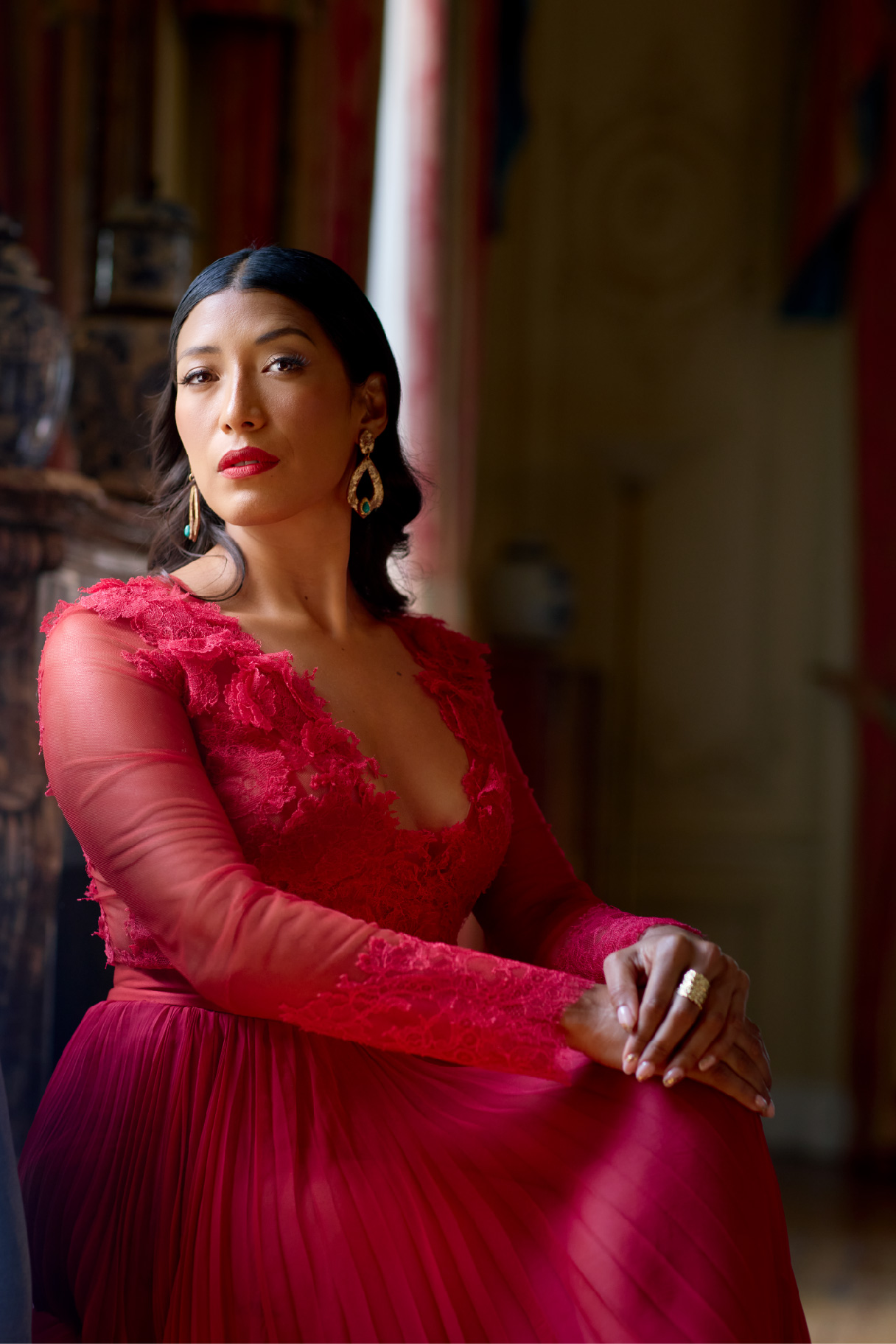
A desire to work, to earn and to perform is at odds with a desire to do so on one’s own terms. For some, the aim is to reach that elusive position where you can be selective about the roles you choose. Gabriela “always questions when I am being seen for roles that are stereotypical and not interesting” while Jimena grapples: “you can be really proud of your background but, because you also want to work so much, you have that uncomfortable feeling of not being truly yourself because, if you are, then you’re not going to get the job”.
Argentine actor and playwright Gigi Tisminetsky agrees. “I don’t want to go up for these roles anymore, but I know I’m cutting out a lot of opportunities. It seems like I play all of these roles that are really problematic - the stripper, the prostitute. I was reading a role recently and thinking I shouldn’t do this, I should say something, it was so stereotypical and so derogatory. But I don’t get offered too many roles. Honestly, I’ve auditioned for 10 roles as a sex worker this year.”
For others, it’s about working from within a project to try to create depth and dimension for an under-thought part. “Once you get a foot in the door, you can open people’s minds and show them what diversity there is within our community,” says Tara.
Meanwhile Lorena seeks to bring elements of Latinidad to characters who weren’t written to be: "can we throw in some Spanish? Can we add some backstory?,” she asks.
When Díana was cast in Marvel’s Moon Knight, she advocated for her character to be Indigenous and provided the production with a list of possible names. “The more successful I am, and the more I’m able to get on these big platforms, the more I’m able to influence and raise awareness about actual issues.”

Holding Your Head High
The value of personal attitude cannot be underestimated, these women agree. Giullianna describes the tricky business of staying emotionally afloat in the industry minefield. "The audition process as deeply personal, but also impersonal: you put yourself out there, but often rejection is because you just weren’t the right fit. You get used to it, and you develop thick skin, but you can’t let rejections harden you. You have to remember your “why” and that you are not at the centre of everything. It’s bigger than you.”
Colombian born and raised actor Mariana Aristizábal came to the UK in part to “seek more sustainable ways to be in the industry”, but she adds, “sustainable isn’t the word I’d use right now… it’s hard, you need to have a lot of endurance and stamina, and you need to be willing to take rejections more frequently than anyone would have to in any other job, so there’s the emotional toll. On the other hand, it’s about being able to adapt and change with every job that comes, but also with the uncertainty of whether a job will come tomorrow or in six months or not. It asks a lot of you. Rejections are really hard, especially when it’s something you get excited by, so it’s important to treat yourself with a lot of love. Every 10 rejections I get, I treat myself to something I really like.”
Finding Control in Creativity
For many, the only viable answer in a hostile environment is to seek out greater creative control alongside acting; writing, directing or producing their own ideas instead of being a pawn in someone else’s vision. For Samantha, “theatre was a way for me to understand my generational role after the dictatorship in Chile, creating meaningful artwork within a context of my upbringing where bodies were literally disappearing.”
Also from Chile, playwright and director Constanza Hola-Chamy explains that she writes “based on things I know — you never write from scratch — and my life is shaped by my identity and the country where I was born. My aim is that my characters can be played by anyone, but I want to write characters who relate to the Latinx community”.
“I want to talk about things from a feminist perspective, and a vulnerable perspective,”says Pepa, who starred in her own critically-acclaimed work 'Eating Myself,' which explores womanhood, body image and tradition. “I want to write characters who convey strength and vulnerability, and where their journey is crucial to the development of the plot.”
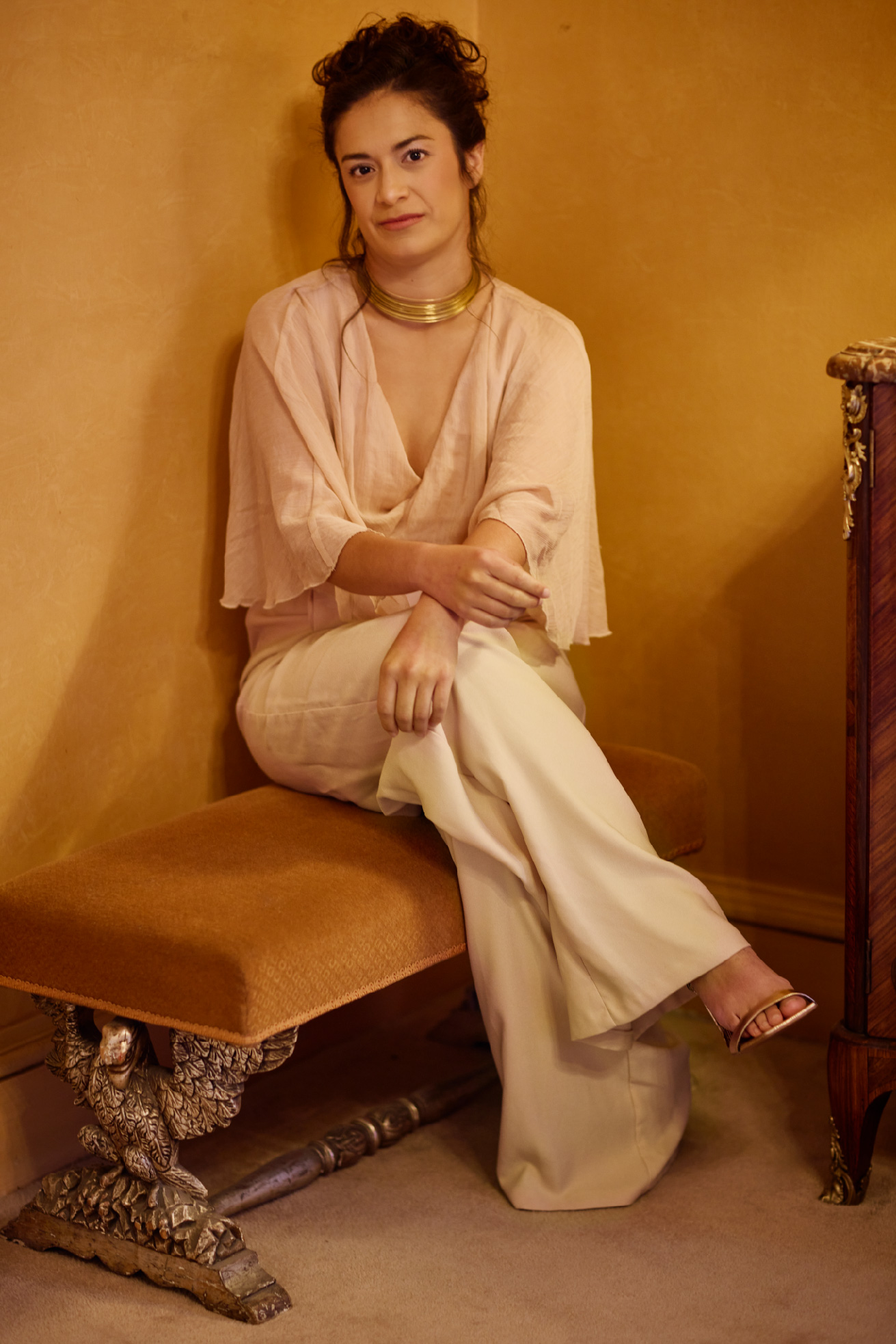 | 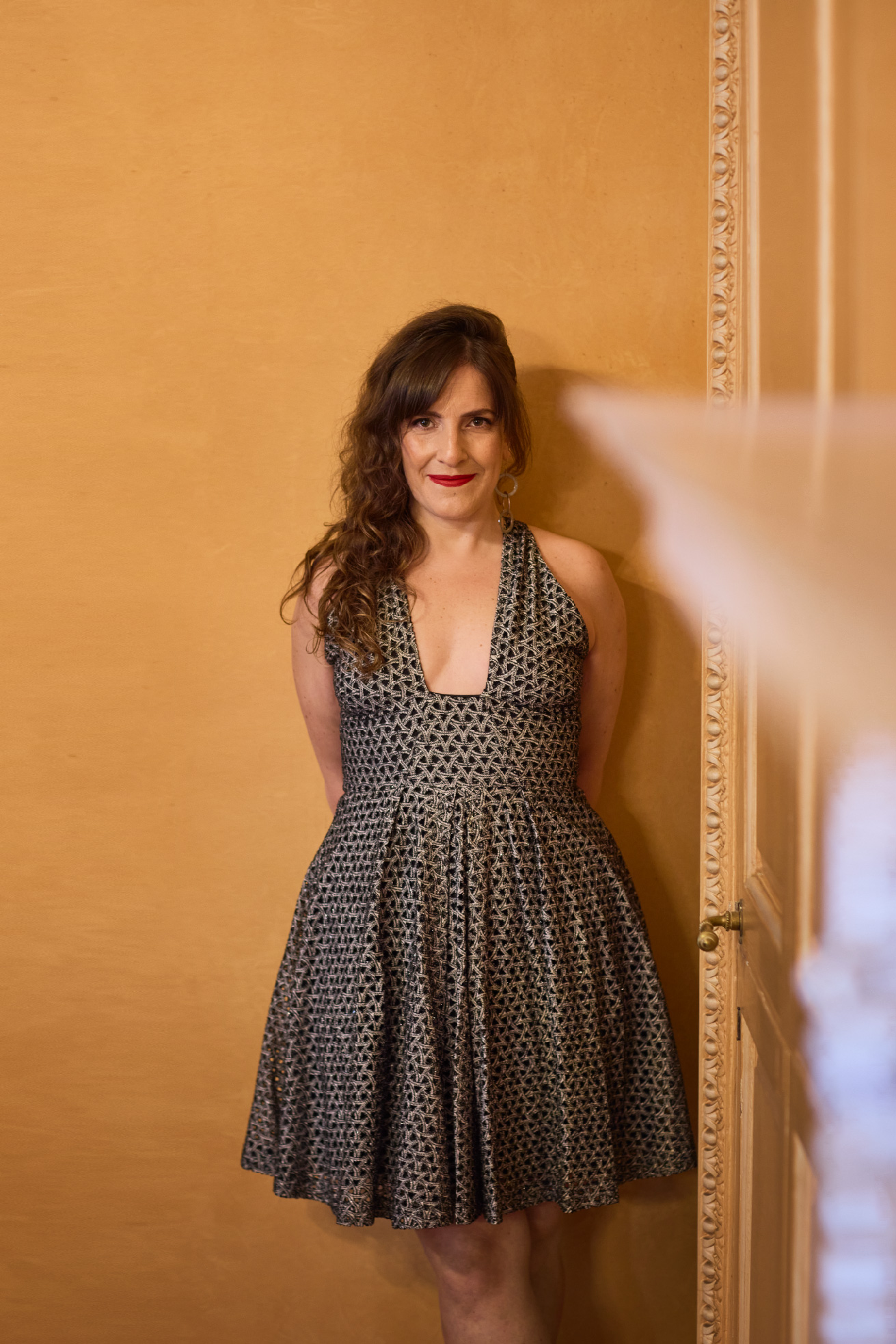 |
Is it a coincidence at almost all these Latina Actors are delving fearlessly into writing and directing, as a way of reasserting control? “That ‘why not’ attitude is very embedded in us as Latinas”, laughs Gabriela, who is working currently on a piece about the life of Frida Kahlo. “I couldn’t think of lot of Latin American roles for women in musicals, so I am creating them myself”.
Whether working from inside out or outside in, what is universal within this cohort is a firm belief that things must change, and it is up to them to make it happen. And thus the ideological and the practical come to blows. One of the greatest challenges is to balance your role as an individual with your role as a cog in a bigger machine. On a personal level, it is undeniable that, sometimes, sacrifices must be made in order to provide for yourself; it is a luxury to be able to reject paid work on moral grounds. But in recognising a responsibility not only to oneself but to one’s community, it becomes clear that a level of solidarity is crucial in turning the tide. It is a hungry industry, and the role one actor rejects is quickly snatched up by another. So a certain unanimity must be reached. Voices must be raised together.
This idea of community comes up again and again. “There is a collective consciousness that our stories are important,”says Giullianna, “So we’re cheering each other on." Díana agrees: “There is room for all of us. I’ve never felt like it’s competitive between us. It’s always been this lovely support where we’re just championing each other because everyone acknowledges that there’s this lack of representation and we all want each other to succeed.”
In this camaraderie, there is magnificent potential. Standing on each other’s shoulders, holding each other’s hands, a colossal collective of Latina talent and purpose is crashing through an industry in dire need of change - and they’re doing it their way.


